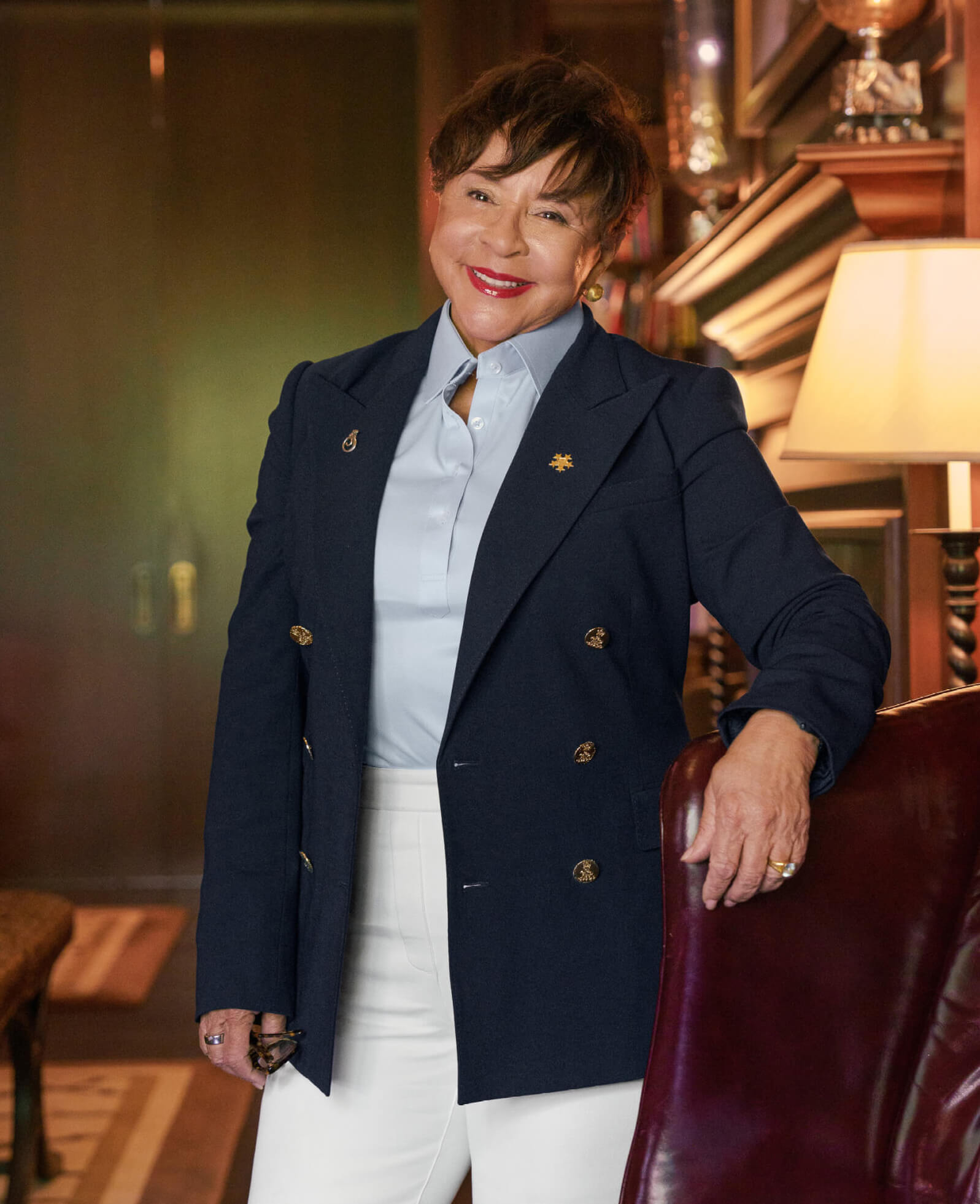Q&A with Sheila Johnson
“FAILURE IS OK. THAT’S HOW YOU LEARN, NO MATTER WHAT AGE”
—SHEILA JOHNSON, 74, BLACK ENTERTAINMENT TELEVISION COFOUNDER AND CEO OF SALAMANDER HOTELS & RESORTS, REFLECTS ON LIFE’S THIRD ACT

You are described by Forbes as one of America’s richest women. What does that feel like?
I hate to be defined by money, first of all. It’s more about the journey I’ve been able to go on and coming out well at the end.
What would you say to young people about finding success?
There is no way in the world that you can move forward without knowing who you are. As I got to know myself better, I was able to go on another path but keep the foundation of my arts career. Now I’m in Act 3 of my life, as a 70-plus-year-old woman. And this is the best part of my life, because not only do I really know who I am, I have a vision of my future.
In your new memoir, Walk Through Fire, you talk about those acts: as a musician, then working with your now-ex-husband to establish BET, then a painful divorce and reemerging in the luxury hotel business. That’s quite a journey.
The first act of my life is the concert violinist. I [became] a first-chair violinist of the Illinois All-State Orchestra. I enjoyed doing it. I knew that was what was defining me at the time. And as other doors have opened and as I have gotten to know myself better, I was able to walk through those doors.
Then, the second act was cofounding BET with your then-husband, Robert L. Johnson.
With Black Entertainment Television, I wanted to make sure that we had the best programming out there. I thought the video market and the way it was portraying women was horrific. I didn’t want young women to think they had to behave like that in these videos for men. I fought that. That was one of the fires I went through.
You write unsparingly about that marriage.
There were other women involved. It was severe betrayal. Once I got out of the marriage, I said, “You know what? I’m going to prove to the world that I can move forward and I can build a new company.”
And that’s your Act 3—a five-star resort called Salamander Middleburg in Virginia, and another you’ve opened in Washington.
I decided to go into the hotel business. I didn’t know anything about it, but I knew I wanted to do it. So what do you do? You bring in people that are smarter than you and have had the longevity of being in a business that they know how to help build. We now have seven hotels. And I’ll tell you, buying the hotel in Washington, D.C., the Mandarin, now a Salamander-branded hotel, set that city on fire in a great way.
What would you say to people 50-plus who haven’t yet found their path?
As my mother always said, “You need to just sit down, be quiet and think about what your next steps are going to be. Don’t rush into anything.” I think people who are trying to find themselves should make a list of what they’ve accomplished, what they want to accomplish, and the roadblocks in their life. I don’t think they should look at their lives as failures. But ask those hard questions.
After all that you’ve been through, how are you taking care of your mental health?
There are still days when I struggle with it. ... After my divorce, I went through a lot of therapy. And even writing this book, it was therapeutic for me. But I realized I am still not really over the trauma that I went through.
You are remarried now—to the judge who presided over your divorce. That’s a happy and unusual ending.
He [told me], “You’re carrying a lot of baggage right now. But I’ll help you work through it.” That impressed me. He knew more about what was going on in my life than I even knew. And I said, “You know what? I’ll give it another try.” And I just fell madly in love with him. I felt safe for the first time in my life.
You started as a violinist and music teacher. How do you cultivate creativity now?
While I was trying to figure out my third act, I really got into photography. I also designed scarves, and now we sell them. As we are redesigning the hotel in D.C., I’m very involved with the design. That’s what excites me: being able to continue to create.
Has your business philosophy changed as you’ve gotten older?
After finishing with BET, it was learning how to be a real leader. Leadership is really key in building a successful company. I have been able to continue to watch and learn. When I went into the hotel business, I needed help. To be a strong leader, I needed to bring in the best and the brightest to help me build a company.
What advice would you give people about having a successful third act?
Learn to take risks. Also, failure is OK. That’s how you learn, no matter what age you are. I still fail at things every day. But I’m, like, “OK, let’s try to go in a different direction. It’s all right.”
Interview by Leslie Quander Wooldridge